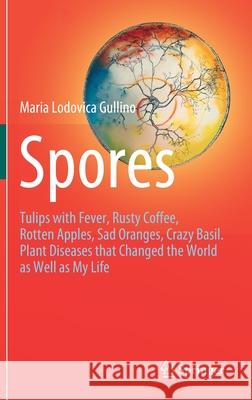Spores: Tulips with Fever, Rusty Coffee, Rotten Apples, Sad Oranges, Crazy Basil. Plant Diseases That Changed the World as Wel » książka
topmenu
Spores: Tulips with Fever, Rusty Coffee, Rotten Apples, Sad Oranges, Crazy Basil. Plant Diseases That Changed the World as Wel
ISBN-13: 9783030699949 / Angielski / Twarda / 2021 / 289 str.
Spores: Tulips with Fever, Rusty Coffee, Rotten Apples, Sad Oranges, Crazy Basil. Plant Diseases That Changed the World as Wel
ISBN-13: 9783030699949 / Angielski / Twarda / 2021 / 289 str.
cena 160,99
(netto: 153,32 VAT: 5%)
Najniższa cena z 30 dni: 154,18
(netto: 153,32 VAT: 5%)
Najniższa cena z 30 dni: 154,18
Termin realizacji zamówienia:
ok. 22 dni roboczych.
ok. 22 dni roboczych.
Darmowa dostawa!
Kategorie:
Kategorie BISAC:
Wydawca:
Springer
Język:
Angielski
ISBN-13:
9783030699949
Rok wydania:
2021
Wydanie:
2021
Ilość stron:
289
Waga:
0.61 kg
Wymiary:
23.39 x 15.6 x 1.91
Oprawa:
Twarda
Wolumenów:
01
Dodatkowe informacje:
Wydanie ilustrowane











